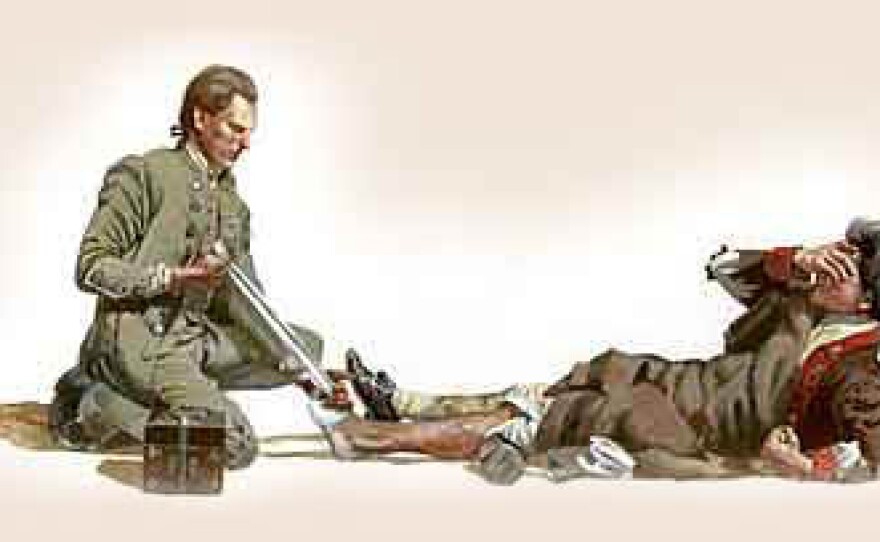"The only field or occupation that benefits from war is medicine."
--Dr. David Cifu, national director of the physical medicine and rehabilitation program office for the Veterans Health Administration.
As the United States' official involvement in the Afghanistan War comes to a close, it's worth noting that the survival rate of military service members who fought in that war was the highest in the history of warfare.
But we’ve come a long way since the United States’ first foray into battle.
If you were unlucky enough to be soldier in the American Revolutionary War and found yourself injured by the enemy, you had at least a 40 percent chance of dying, according to Scott McGaugh, author of Battlefield Angels: Saving Lives Under Enemy Fire From Valley Forge to Afghanistan.
Most likely, your death would be neither quick nor easy. If you managed to survive the initial injury (say, by a musket ball) it would probably take you hours, if not days to reach what passed for a military hospital.
If you made it to a field hospital in the Revolutionary War with breath still in your body, you’d find a lack of medical supplies and medical professionals. The surgeons’ use of unclean tools made surviving surgery iffy at best. The hands with which those surgeons performed their operations were rarely, if ever, washed before a procedure, adding to the danger of infection.
But let’s say you made it out of surgery. As you lied in a crowded, stuffy room that was filled with lice and the stench of human suffering, the best treatment the doctor could find for you to help prevent infection would be to empty your body of as much as a quart of blood.
You may have survived the battle, so to speak, but you had a good chance of losing the war, as one in four patients in Revolutionary War field hospitals died. Dr. Benjamin Rush, a prominent physician of Philadelphia, wrote in 1777 that a "greater proportion of men have perished with sickness in our armies than have fallen by the sword."
Tomorrow, Part II - The Civil War






